Table of Contents
Numbness In Hands While Sleeping- Causes, Treatments, and More!
Numbness in hands while sleeping can happen if a person sleeps in a position that squeezes or compresses the nerves or blood vessels in the hands. This kind of hand numbness may fix when the person changes the sleeping position. Nevertheless, numbness in hands while sleeping might signify nerve damage because of an underlying health disorder.
Unexplained numbness in hands while sleeping can be a worrisome sign to wake up with, but it is generally nothing to stress about if that is the only symptom you are facing. Possibilities are it is likely a consequence of nerve compression due to the sleeping position.
Nevertheless, if you sense numbness in hands while sleeping along with any other uncommon symptoms, such as numbness elsewhere, take an appointment with a doctor. Nerve compression occurs when something (in the given case, the position of the arms) exerts extra stress on a nerve, reducing blood flow.
If you have numbness in your hand, it’s probably due to compaction of the ulnar, median, or radial nerves. Each of the nerves begins at the neck. They run down through your hands and arms.
Keep reading to learn why numbness in hands while sleeping occurs and how to recognize different kinds of nerve compression so you can modify your sleeping position, therefore.
Causes of numbness in hands while sleeping
1. Sleeping position
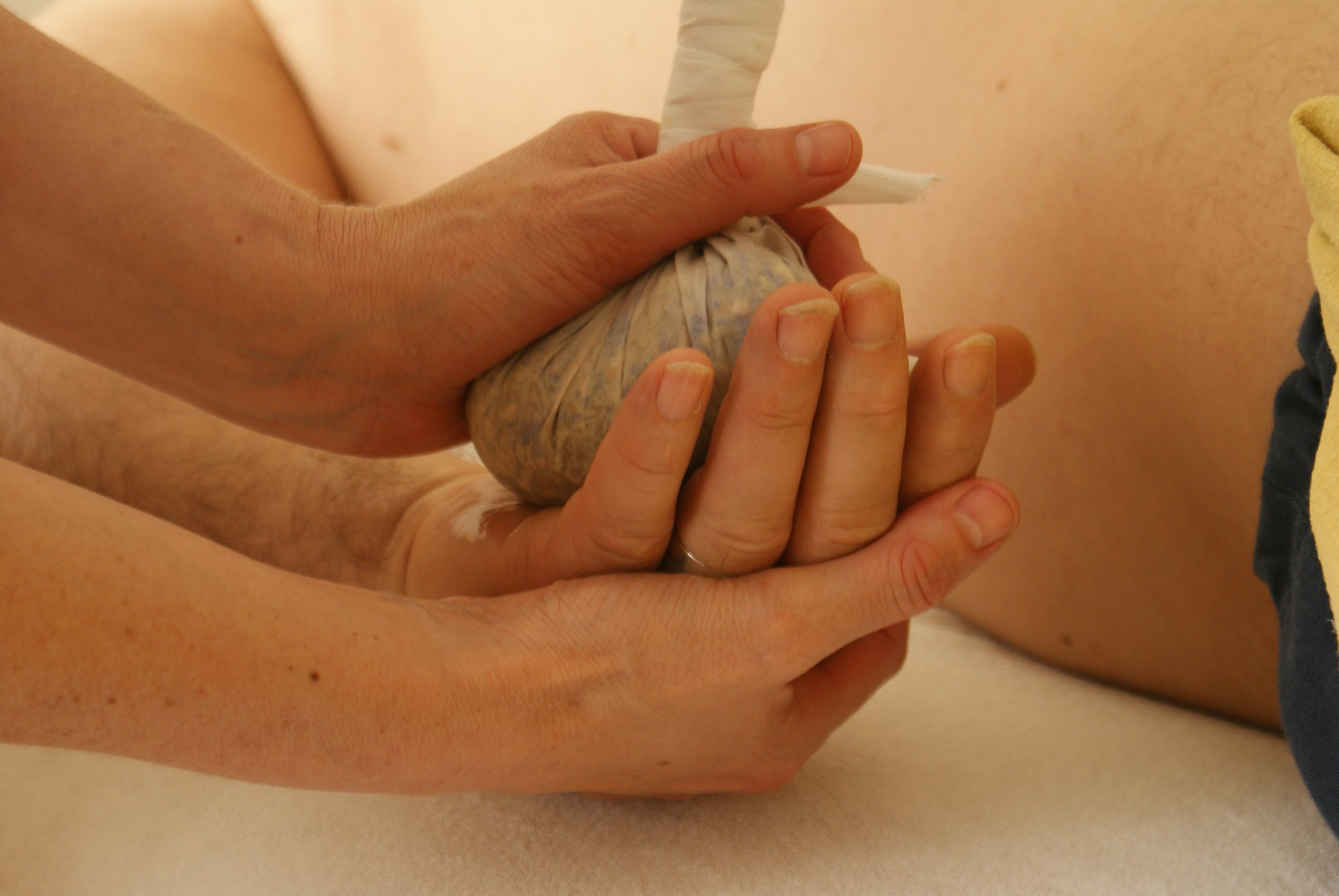
Specific sleeping positions can exert pressure on your nerves in your hands and arms, causing numbness in hands while sleeping. Those who like sleeping on their stomach might undergo hand numbness if they sleep keeping their hands beneath their head.
Those who have a habit of sleeping on their side might bend their wrists or arms in a way that squeezes nerves, thus limiting blood flow to the hands. People who sleep on their back can awake to have numb hands if they relax the back of their head on the arm.
2. Ulnar nerve compression
The ulnar nerve helps manage forearm muscles that let you grip things. It also delivers sensation to the pinky finger and the half of the ring finger adjacent to the pinky in both the back and front of your hand.
Your ulnar nerve is also accountable for the numbness, shock, or pain you may feel when bumping the interior of the elbow, typically called the “funny bone.” Ulnar nerve compression generally results from excessive pressure on the wrist or elbow.
So, if you have a habit of sleeping with your hands and arms curved inward, you may feel numbness in:
- the pinky finger and the pinky side of the adjacent ring finger
- back of your hand underneath these fingers
- the portion of your palm below these fingers
Constant compression of your ulnar nerve can lead to the growth of cubital tunnel syndrome. If discomfort or weakness begins to escort your numbness, take an appointment with the doctor. They may suggest some home workouts or periodically provide an elbow brace to wear.
Treatment for ulnar nerve compression
Treatment generally relies on the cause. Regardless, anti-inflammatory medicine can help to relieve symptoms. An individual may also try a wrist splint. If the reason for compression is growth at your wrist, a surgeon might remove it. The nerve might take a few months to heal, per the AAOS.
3. Median nerve compression
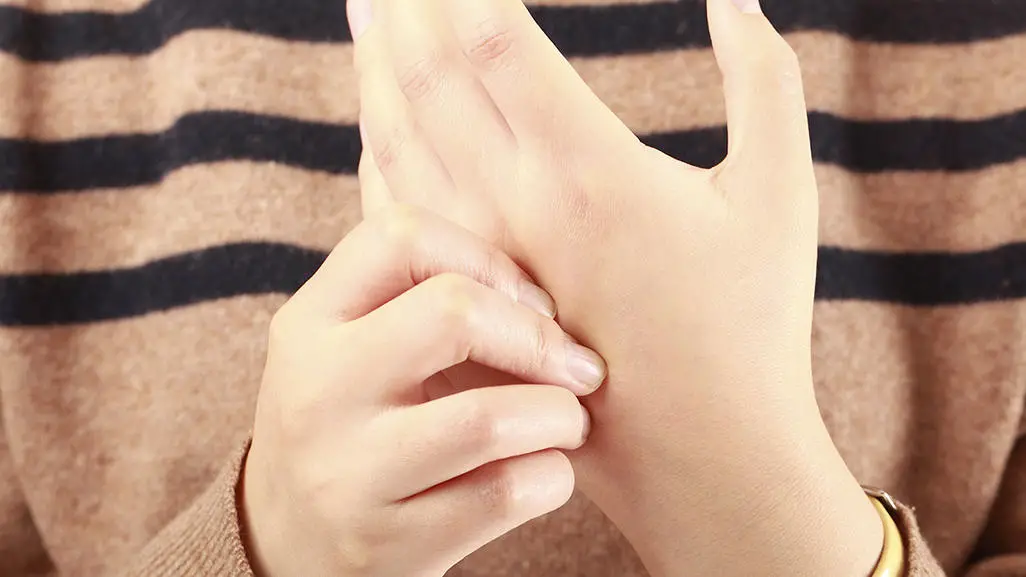
The median nerve regulates muscles and sensation in the middle and index fingers. It’s also accountable for sensations and muscles in the middle-finger side portion of the ring fingers and the thumb on your palm’s side.
Contraction of your median nerve also happen at the wrist or elbow, so twisting up and sleeping in the fetal posture might leave you with numbness in your hands while sleeping, specifically:
- on your front (palm) side of the thumb, middle, index, and half of the ring finger (the half located on the middle finger flank)
- near the bottom of your thumb on your palm side.
Continuous compression of your median nerve at the wrist can lead to carpal tunnel syndrome, although the sleeping posture generally would not cause it on its own.
4. Radial nerve compression
The radial nerve governs the muscles utilized to stretch your wrist and fingers. It’s also liable for the sensations and muscles in the rear of your thumb and hand.
Too much stress above the wrist or along the forearm can cause compression of your radial nerve. Sleeping on the wrist or arm, for instance, could lead to numbness:
- in the index finger
- in the webbing portion located between the thumb and index finger
- on the rear side of the thumb
Force on the radial nerve can also cause a condition known as radial tunnel syndrome, but you generally won’t face numbness in the hands or fingers with this disorder. Instead, you will probably encounter pain in your wrist, elbow, and forearm.
5. Carpal tunnel syndrome
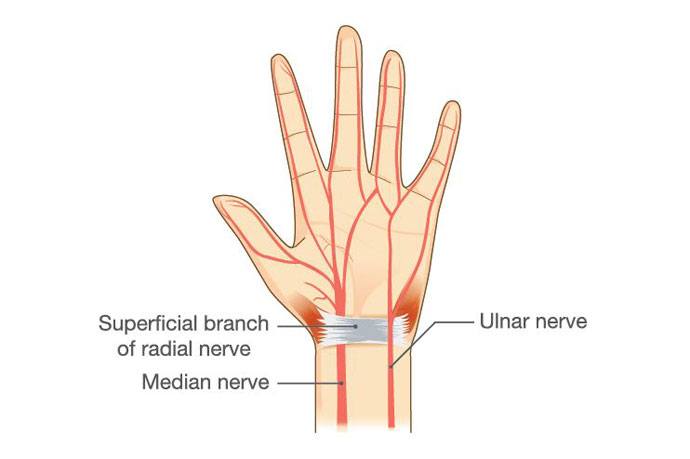
The carpal tunnel is a restricted passageway present in your wrist. The tendons and median nerve of your fingers pass across the carpal tunnel. Carpal tunnel syndrome (CTS) happens as a result of a reduction of your median nerve within the narrow carpal tunnel.
As the National Institute of Neurological Disorders and Stroke (NINDS) reports, Carpal Tunnel Syndrome usually results from nearby connective tissues instead of the median nerve.
Repetitious motion wounds, sprains, and fractures in your wrist can cause swelling that grows pressure on your median nerve, thus causing numbness in hands while sleeping.
Other possible reasons for CTS are swelling, edema, hormonal changes, and rheumatoid arthritis.
NINDS mentions that CTS signs tend to occur while sleeping during the night. People having CTS might encounter numbness and pain in the wrist, hand, or finger after waking up in the morning or during the middle of the night. Over time, these signs might resume during the daytime.
The signs of CTS are:
- numbness in your middle fingers, thumb, or index fingers
- ache or numbness that slowly extends to your hand and wrist
- weakness in your hands and fingers
NINDS also reports that when left untreated, CTS can guide to the loss of muscle tissue at the bottom of your thumb, decreased sensitivity to changes in temperature in your thumb and fingers, and loss of grip strength.
Treatment
People can address CTS signs with a lot of rest, Over counter pain medications, and wrist splints as suggested by their healthcare provider.
A person can likewise opt for surgery when a doctor suggests it based on their condition.
Carpal tunnel release is a surgical technique that includes cutting your carpal ligament at the bottom of your palm to decrease pressure on your median nerve.
6. Diabetic neuropathy
Diabetic neuropathy implies nerve damage as a result of diabetes.
As per the National Institute of Diabetes and Digestive and Kidney Diseases (NIDDK), diabetes is a disease that degrades the body’s capability to yield or utilize insulin. Consequently, your body cannot accurately process blood sugar or blood glucose.
The NIDDK state that with time, high levels of blood glucose can harm blood vessels that supply blood to the nerves and your nerves too.
There are various kinds of diabetic neuropathy, these include:
- Peripheral: This commonly concerns the feet and hands.
- Focal: This is impairment of single nerves, generally in the leg, torso, hand, and head.
- Autonomic: This involves your internal organs.
- Proximal: This is sporadic and concerns the thigh, buttock, and hip.
People who suffer from peripheral neuropathy might undergo the following signs in the leg, feet, hands, or arms:
- weakness
- burning
- tingling sensation
- pain
- numbness
- problem sensing temperature and pain in the affected portion of the body
Those who suffer from focal neuropathy in their hands might experience:
- CTS, which leads to numbness, discomfort, and tingling sensation in the fingers
- ulnar entrapment that leads to discomfort, numbness, and tingling sensation in the pinky and ring fingers
Treatment
Unfortunately, healthcare providers cannot undo the damage caused to the nerves. Cures for diabetic neuropathy focus on handling symptoms and stopping further damage to the nerves.
Examples of medicines or treatments in case of diabetic neuropathy are:
- Over the counter pain relievers
- anticonvulsants and antidepressants for nerve pain
- topical ointments, patches, and sprays that include lidocaine
- Over the counter or prescription medications to minister digestive problems
- antibiotics for skin or bladder infections
- wearing a brace or splint
Surgery might be a choice for focal neuropathy.
7. Cervical spondylosis
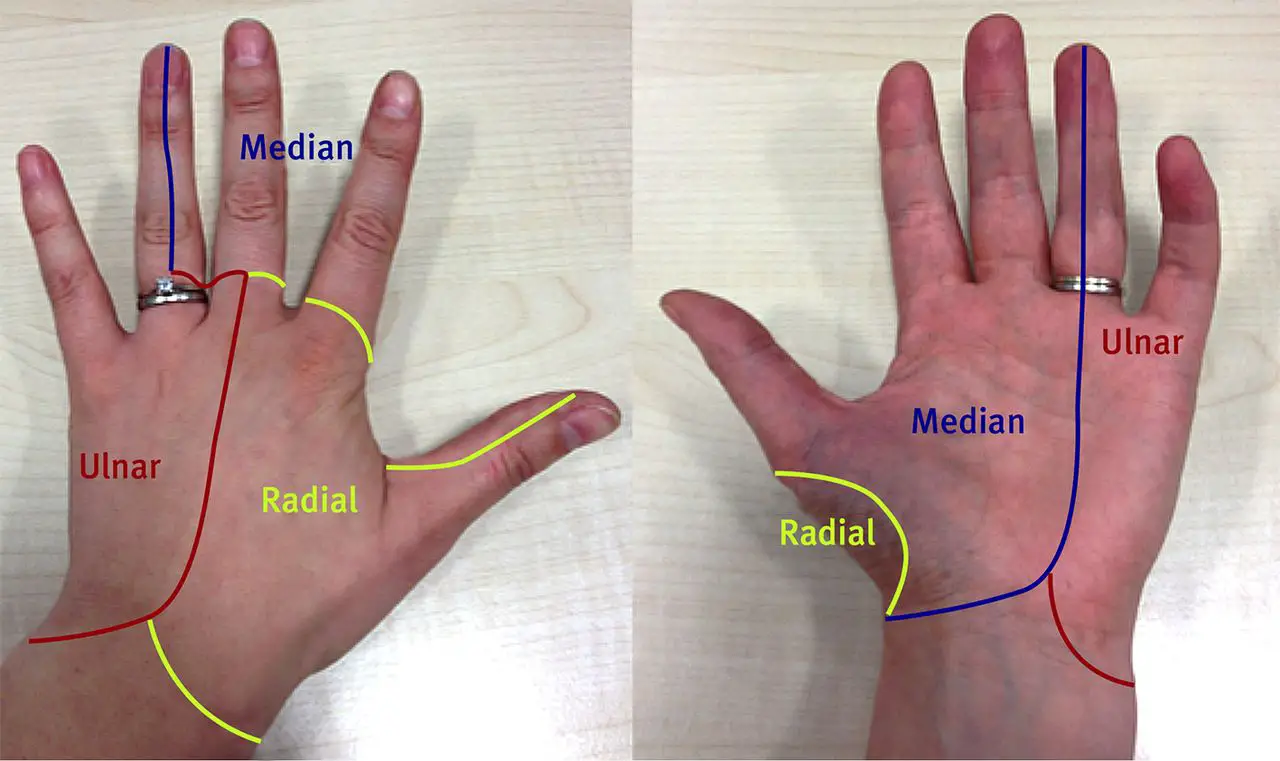
Cervical spondylosis is another cause of numbness in hands while sleeping. It is an age-related disease that influences the spinal vertebrae in your neck. The AAOS mentions that it most typically happens in people aged 60 or older.
Over time, age-related deterioration alters the design of the spine.
In a few cases, the cartilage disc that softens the vertebra begins to wear away till the two vertebrae glide against one another. This decline can raise pressure on your spinal cord and cause numbness or tingling sensations in the fingers and hands, although many individuals will encounter no apparent symptoms.
Other signs of the condition mentioned above include:
- discomfort or stiffness in your neck
- diminished range of movement in your neck
- pain that diverges from the bottom of the head down to your upper back
- weakness in the fingers, hands, or arms
- reduction in grip strength
- problem performing everyday tasks, like tying shoelaces, grasping smaller objects, and buttoning a shirt.
- stability reduces while walking
Treatment
As per the AAOS, treatment possibilities for cervical spondylosis are:
- physical treatment to strengthen your neck muscles and upper back
- pain relievers, like nonsteroidal anti-inflammatory drugs (NSAIDs), muscle relaxants, and antidepressants.
- specially created cervical pillows and neck braces can alleviate neck pain
- trigger point injections (TPIs) for shoulder, neck, or upper arm pain
- steroid injections in the area near your spinal cord
- cervical discectomy, which includes extracting a herniated disc that is squeezing or compressing your spinal cord.
8. Alcohol use disorder
The National Institute on Alcohol Abuse and Alcoholism mentions that alcohol use disorder (AUD) occurs from an incapacity to handle or limit alcohol use. Excessive alcohol intake can cause adverse physical, psychological, and social effects over a prolonged period.
Alcoholic neuropathy is among the various health effects associated with chronic alcohol consumption. Nearly 66% of people suffering from AUD have some record of neuropathy.
Alcoholic neuropathy can lead to the subsequent symptoms:
- discomfort, numbness, or tingling sensations in the legs, arms, and hands
- muscle twitches, spasms, or compactions
- weakness in muscles
- bowel and bladder changes
- vomiting or nausea
- abdominal bloating
- hypersensitivity to changes in temperature
- sexual dysfunction
Treatment
As per one 2020 article, if an individual quits drinking alcohol, the results are favorable.
They mention that most people suffering from alcohol neuropathy retrieve complete function as they quit drinking. Occupational therapy and physical therapy might also be helpful.
When to see a doctor
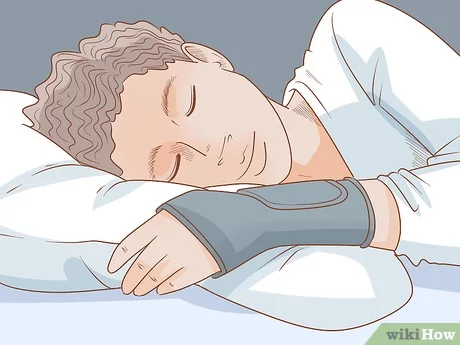
If you have tried sleeping in various positions or using a splint/brace at night and are still facing numbness in hands while sleeping, you might want to make a meeting with your doctor to discuss the causes.
Also, visit a healthcare provider if you notice any of the following:
- numbness that stays even during the day
- numbness in different parts of the body, such as your shoulders, back, or neck
- numbness in only one part of the hand or both hands.
- weakness in muscles
- clumsiness in the fingers or hands
- feeble reflexes in your legs or arms
- pain in the arms and hands.
Diagnosis
If an individual faces numbness in hands while sleeping or after waking in the morning, they can gently massage or shake out the hands in an attempt to relieve the numbness on their own.
Hand numbness that settles after a short period generally implies that a compressed blood vessel or nerve has generated the numbness. People can adjust their sleeping position to discourage this kind of numbness.
A healthcare provider can analyze numbness connected to an underlying illness. They can diagnose conditions depending on a physical examination and an assessment of an individual’s past medical records.
To verify their diagnosis, a healthcare provider might call imaging examinations, like X-rays, CT scans, and MRI scans. They might furthermore perform nerve examinations to identify places of nerve damage.
The Bottom Line
Numbness in hands while sleeping often occurs due to compression of the median, ulnar, or radial nerves. These nerves are accountable for muscles in your fingers and hands. Too much force on these muscles can cause numbness in hands while sleeping.
Waking up having numbness only within the hands and fingers generally is not a cause for worry if you do not face other symptoms. Sleeping in a position or maintaining your elbows and wrists straight while you rest might be sufficient to relieve numbness.
But if you keep experiencing numbness or begin to detect other uncommon symptoms, visit your healthcare provider for diagnosis and treatment.


